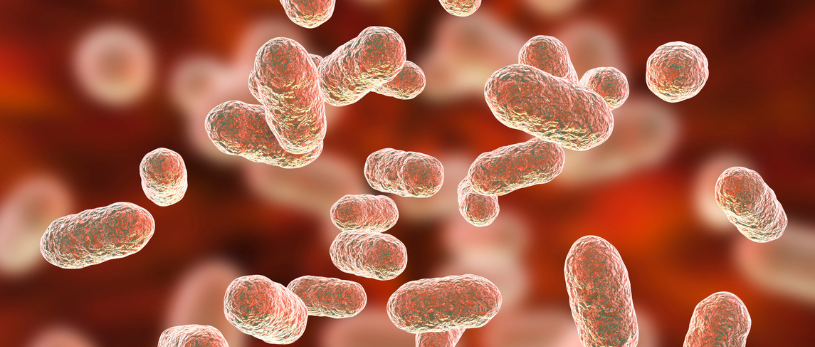The menstrual cycle is a fundamental part of women’s health. From adolescence to menopause, each woman experiences menstrual cycles that are unique in duration and regularity. However, sometimes women notice changes in their cycle, such as an unexpected shortening or lengthening. These changes can be concerning and raise doubts. In this article, we explore in detail the causes and effects of shortening or lengthening the menstrual cycle, when it is necessary to consult a doctor, and how to maintain optimal menstrual health.
What is a Normal Menstrual Cycle?
The average menstrual cycle lasts between 21 and 35 days. It is divided into four main phases:
- Menstruation: Begins on day one of the cycle, lasting 3 to 7 days.
- Follicular Phase: Starts on the first day of menstruation and continues until ovulation.
- Ovulation: Usually occurs around day 14 of the cycle.
- Luteal Phase: Follows ovulation and lasts about 14 days until the next menstruation.
Shortening or lengthening the menstrual cycle involves changes in the duration of one or more of these phases.

Common Causes of Shortening or Lengthening the Menstrual Cycle
Shortening of the Menstrual Cycle
- Stress and Anxiety: Chronic stress can cause dysfunction in the hypothalamus, affecting hormonal regulation and resulting in a shorter cycle.
- Perimenopause: During the transition to menopause, hormonal levels fluctuate, which can cause shorter cycles and more frequent bleeding.
- Excessive Exercise: Extreme exercise, common among athletes, can disrupt hormonal regulation and cause shorter cycles.
- Polycystic Ovary Syndrome (PCOS): Some women with PCOS experience shorter cycles due to hormonal imbalances.
- Hyperthyroidism: An excess of thyroid hormones can speed up metabolism and shorten the menstrual cycle.
- Hormonal Contraceptives: Some low-dose birth control pills can shorten the menstrual cycle.
Lengthening of the Menstrual Cycle
- Polycystic Ovary Syndrome (PCOS): PCOS can also cause longer cycles, as hormonal imbalances delay ovulation.
- Weight Loss or Gain: Drastic changes in body weight can interfere with ovulation, resulting in prolonged cycles.
- Hypothyroidism: A decrease in thyroid hormones can lead to longer cycles and heavier menstruations.
- Prolactinoma: A benign tumor in the pituitary gland can increase prolactin levels, resulting in longer menstrual cycles or even amenorrhea.
- Perimenopause: In addition to shorter cycles, some women in perimenopause may experience longer cycles due to variability in ovulation.
- Chronic Stress: Long-term stress can cause dysfunctions in the hypothalamic-pituitary axis, delaying ovulation and lengthening the cycle.
- Hormonal Contraceptives: Hormonal IUDs can reduce the frequency of periods or eliminate them entirely.
Symptoms Accompanying the Shortening or Lengthening of the Menstrual Cycle
- Lighter or heavier bleeding.
- Changes in the duration of bleeding.
- Increased menstrual cramps.
- Pelvic pain.
- More intense premenstrual symptoms.
When to Consult a Doctor
While it is normal to experience occasional changes in the menstrual cycle, it is recommended to consult a doctor if:
- Cycles consistently last less than 21 days or more than 35 days.
- You miss one or more cycles without being pregnant.
- The bleeding is unusually heavy or lasts more than 7 days.
- There is bleeding between periods.
- Intense pain is experienced during menstruation or ovulation.
Diagnosis and Treatment
Diagnosing menstrual irregularities may require:
- Physical and gynecological exams.
- Blood tests to evaluate hormone levels.
- Pelvic ultrasound to check the health of reproductive organs.
- Evaluation of the thyroid and other chronic diseases.
Treatment depends on the underlying cause. Some options include:
- Lifestyle Changes: Reduce stress, adopt a balanced diet, and maintain a healthy weight.
- Hormonal Therapy: Birth control pills, estrogen or progesterone therapy.
- Thyroid Medications: If there is thyroid dysfunction.
- PCOS Treatment: Lifestyle changes and medication.
- Pain Management: Anti-inflammatory drugs to relieve cramps.
Tips for Maintaining Optimal Menstrual Health
- Tracking the Cycle: Use tracking apps to identify patterns and changes.
- Healthy Eating: Consume a nutrient-rich diet to support hormonal balance.
- Moderate Exercise: Maintain an exercise routine without overdoing it.
- Stress Management: Practice relaxation techniques such as meditation or yoga.
- Regular Medical Visits: Conduct annual gynecological checkups.
![]()
In conclusion, the shortening or lengthening of the menstrual cycle can be due to various causes, from lifestyle factors to medical conditions. It is crucial not to ignore these changes and seek medical guidance when necessary. Maintaining a healthy lifestyle and having regular medical checkups are essential for menstrual well-being.
At Gravida, we care about your health and are here to provide information and support at every stage of your life. Contact us for any inquiries.
- Call us at +34 932066489
- Email us at internacional@gravidabcn.com
- Send us a form through this link.




